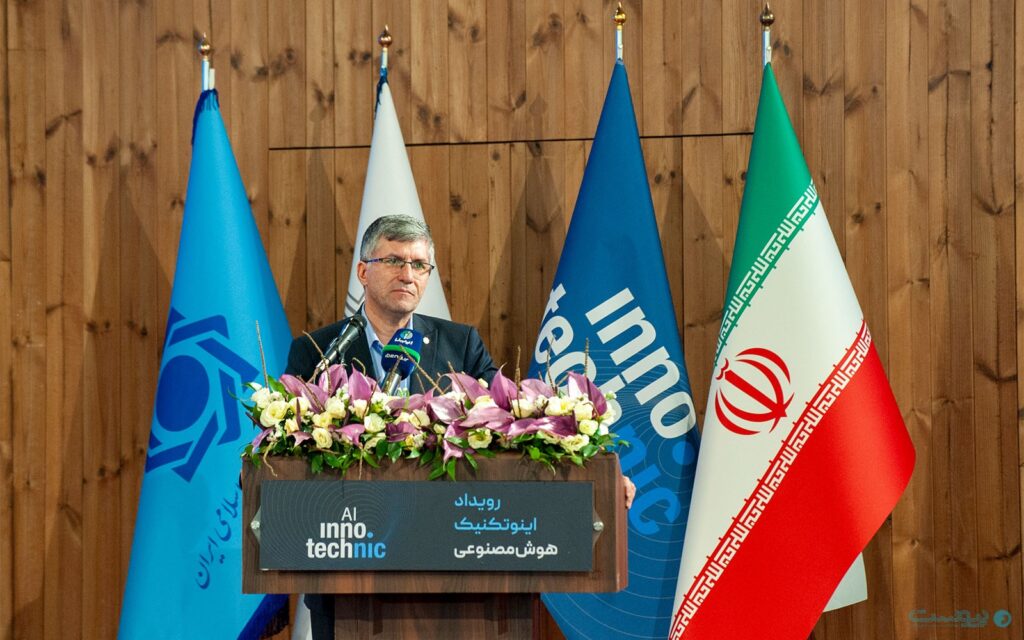The Deputy of Innovative Technology at the Central Bank has announced the implementation of leasing regulations for LandTechs that acquire financing from non-banking sources.
According to IDEA, Mehran Mohammadian, the Deputy of Novel Technologies at the Central Bank, stated during the inauguration of the first Innotechnic event: Currently, the Central Bank has outlined three models for LandTechs. In the first model, LandTech acts as the seller, offering financing services through installment sales, with no direct involvement from the Central Bank. In the second model, the banking network provides financing, adhering to Central Bank regulations. The third model involves non-banking financing, categorized as leasing. Our endeavor is to regulate this third model of LandTechs through the revision of leasing regulations.
The Deputy of Innovative Technology at the Central Bank referred to the new credit scoring model and noted: Currently, 30% of Iranians have a credit score, and with the continued implementation of the new model, credit scoring coverage in the country will reach 100%. Moreover, the accuracy of credit scoring will increase from 60% to 88%, approaching global standards.
Mohammadian also addressed the issue of microfinance provision, stating that Bank-e-Tajarat and several other banks have initiated microfinance offerings. Bank-e-Tajarat, through the Mybajet application, has successfully responded to a significant number of marriage-related financing requests. Elevating the regulatory framework for LandTechs to facilitate microfinance provision in a very short period is one of the aspects for which we must devise technological solutions.
Regarding the Innotechnic event, he mentioned that in the Reverse Pitch segment, organizations and institutions present their issues and challenges, inviting innovators and experts to provide solutions. The Innotechnic event follows a similar model. Essentially, the Central Bank aims to address the challenges of the banking system through innovative solutions. It is not common in the country for an organization or institution to boldly announce its own challenges, and the Central Bank has adopted this approach for the first time
In continuation, he highlighted the role of technology in serving the public, stating, ‘In the past six to seven days, approximately 740,000 individuals received Arba’een currency. Among this number, 367,000 received it in person, while 370,000 acquired the necessary currency through remote means, such as applications and messaging platforms. The majority of non-in-person currency distribution was facilitated by Bank Melli and Baleh, with Bank Saderat also being linked to the latter. We are striving to transition the entire process to electronic and remote channels.’
The Deputy of Innovative Technology at the Central Bank discussed the ‘Mahcheck’ system: ‘Another significant achievement during this period was the Mahcheck Bounce system. Through this system, bounced cheque amounts are blocked in the individual’s account, a substantial move. This demonstrated that many matters could be resolved without involving the judiciary and bureaucratic processes, allowing stakeholders to achieve their goals without engaging in legal complexities.
He continued, ‘Furthermore, under this law, prisoners related to bounced cheques have experienced a remarkable reduction. In 1396 (2017-2018), the daily average of individuals imprisoned for bounced cheques reached 10, while one year after the implementation of the new law, it decreased to one every two days. Two years after the law’s implementation, meaning this year, the number has further reduced to one in every three days.’
About Siaq system
Mohammadian addressed the ‘Siaq’ system: ‘The Siaq system has also been completed and delivered to the judiciary over the past two years. With this system, the average time for asset seizure, which took around 200 days in 1396, has been reduced to a matter of minutes.’
The Deputy of Innovative Technology at the Central Bank added, ‘Regarding the current operational status of the electronic cheque service in ten banks, due to its recent introduction, it is currently provided in a limited manner in these ten banks.’
Dr. Mohammadian stated, ‘So far, approximately 400,000 electronic cheques have been issued, and around 350,000 electronic cheques have been cleared. The highest volume of issued electronic cheques is attributed to Bank Saderat, followed by Parsian Bank and Bank-e-Tajarat. One of the limitations of electronic cheques was their inability to be cleared in banks other than the issuing bank, but gradually this issue has been resolved, and we hope that the electronic cheque service will achieve a broader scope. Hence, the most significant feature of the electronic cheque lies in its electronic and non-invasive clearing, eliminating the need to visit a branch.
Secretary of the Innotechnic Event: We Rank 53rd in Global Innovation
Ali Abdollahi, the former CEO of the National Informatics Company and a member of its board of directors, referred to the inaugural Innotechnic event’s national informatics platform approach and stated, ‘Innotechnic serves as a platform to facilitate innovation. In essence, we have advanced the services of the National Informatics Company through a combination of innovation, technology, and NIC (National Informatics Company). We bear such responsibility as the governing arm of the Central Bank. In this event, we are seeking technological solutions to address the challenges and issues faced by the Central Bank. Currently, we are ranked 53rd in global innovation, and we aspire for this ranking to climb by ten places. In the evaluation of the innovation index in terms of innovation linkages, which signifies the connection between academia, and industry, we have a serious deficiency, ranking 107th among 139 countries. We must strive to elevate our position in this domain. This event could be a catalyst for such advancement, enabling the National Informatics Company to act as a bridging platform between academia, industry, and governance.
Abdollahi regarded several innovation linkages as necessary for the country’s innovation growth, including political, legal, business environment, environmental sustainability, knowledge acquisition, etc. He stated, ‘Today, innovation is intertwined with history, and we must prioritize open innovation. Open innovation leads to the emergence of new markets. If we do not advance open innovation, we cannot progress to the next stage of innovation, which is ecosystem innovation. However, to reach this stage, we must inevitably pass through the open innovation phase.’
The former CEO of the National Informatics Company expressed, ‘The National Informatics Center operates as a platform for linking innovators and innovation-seekers. In fact, it will establish a connection between innovation and open innovation. The SandBox is a sample of this novel and fresh approach.’
He related the level of global economic growth to the extent of investment in research and innovation and stated, ‘At present, the path of smart economics has been appropriately adopted, and it is predicted that smart economic growth will outpace traditional economic growth in the next 10 years, reaching 18%.’
Abdollahi emphasized that the event focuses on combating money laundering, the experiences of banking system actors, identity verification and security, and macro and micro supervision in the banking and central banking system based on artificial intelligence utilization. Efforts are directed at addressing the needs of these areas. The Central Bank is moving toward intelligent banking, and this event provides a platform to assist in the enhancement of intelligent banking.
Deputy of the Central Bank’s Economy Division: Governance in Technology Advances Slowly
Mohammad Shirijian, Deputy of the Central Bank’s Economy Division, addressed the event and stated, ‘The development plan is focused on a knowledge-based economy, and utilizing technological capacities and tools is a form of intelligent economics. To make appropriate decisions, we must utilize data to make informed economic choices. This is where the importance of the link between technology and governance becomes evident.
He continued, ‘In this realm, governance evolves slowly, and technological advancements indicate much greater progress in governance. We must also clarify the transformations that occur in governance, the interactions among agencies, and approaches due to innovation development. The impact of artificial intelligence on central bank policy-making is a matter of concern.
Shirijian referred to the challenge the central banks face with digital currencies and cryptocurrencies and said, ‘One of the challenges central banks have encountered is dealing with digital currencies. The effects of utilizing digital currencies and the advancement of CBDC (Central Bank Digital Currency) on money laundering, monetary and financial policies, and other central bank functions create a question mark that requires an answer.
The Deputy of the Central Bank’s Economy Division addressed other challenges in monetary and financial policy-making, saying, ‘Reforming the banking system by focusing on managing imbalances and the issue of liquidity, along with regulating the foreign exchange market, constant monitoring, and improving comprehensive economic expectations for society and economic actors, are among the challenges faced by the Central Bank





No Comment! Be the first one.